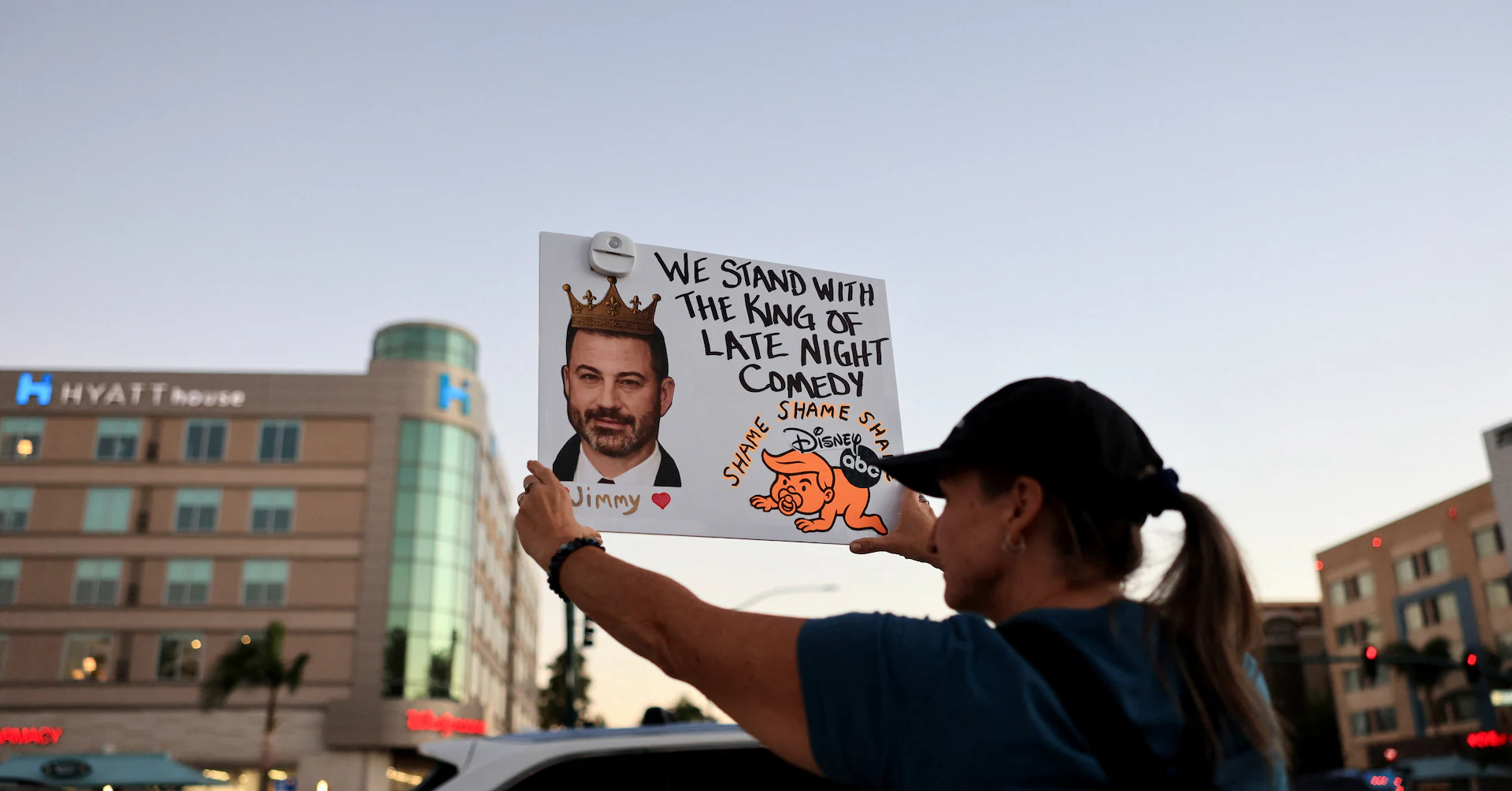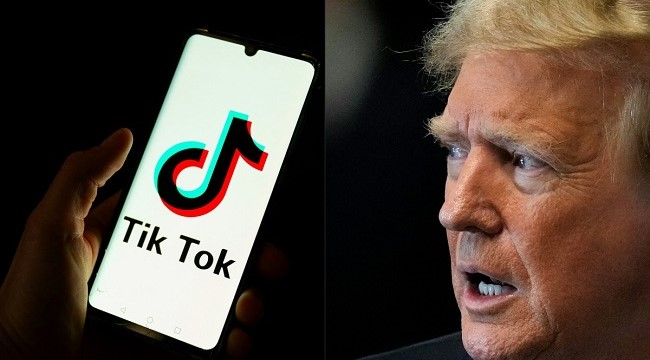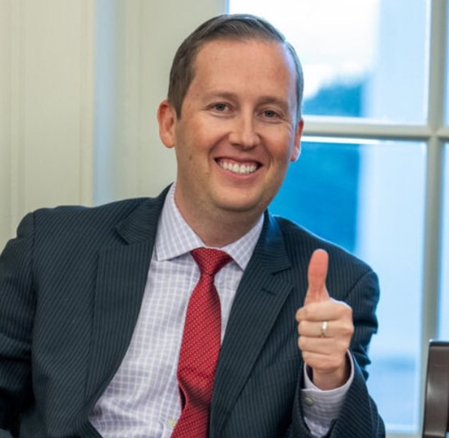
The move, which came after Kimmel’s remarks about the accused killer of slain conservative activist Charlie Kirk, has jolted the U.S. media and entertainment industries and intensified free-speech fears as the Trump-appointed FCC chair Brendan Carr threatened to revoke broadcast licenses from stations that carry what he called “garbage.”
Sign up here.
This week, the Trump administration announced it had agreed to a framework for a deal with China that would allow the sale of TikTok’s U.S. assets to continue to operate in the U.S.
“There is a continued lurch to the right throughout much of our major media in the United States right now,” said Victor Pickard, professor of media policy and political economy at the Annenberg School of Communication at University of Pennsylvania. “I expect to see more of this to come. There’s no countervailing force against it.”
“They’re all terrified,” said Steve Kroft, who was a longtime “60 Minutes” correspondent, specifically citing the nightly broadcast news. “The thing that scares me the most about this administration is this retaliatory mindset, to go after its enemies. And I think they’re clearly going after the news people. That’s the top of their list.”
Disney declined to comment.
“Jimmy Kimmel is free to make whatever bad jokes he wants, but a private company is under no obligation to lose money producing an unpopular show,” said White House spokeswoman Abigail Jackson. “Jimmy Kimmel’s terrible product isn’t a free speech problem; it’s a talent problem.”
CAMPAIGN AGAINST PERCEIVED BIAS
Pressure on traditional media comes after conservatives successfully pushed digital platforms to pare back content moderation which they portrayed as biased.
Elon Musk acquired Twitter in 2022, which had banned Trump for “incitement of violence” after the January 6, 2021 riot at the U.S. Capitol, pand promised to restore “free speech” to the platform. Renamed X, Musk eliminated its Trust and Safety team in favor of a system that allows its users to fact-check posts, and restored accounts of conservatives who previously had violated Twitter’s policies.
Content on the platform has become more right-leaning since the acquisition, according to research from Queensland University.
Meta Platforms disbanded its third-party fact-checking program in the United States, changes that affected Facebook, Instagram and Threads.
The company elected Dana White, a Trump ally and the chief executive of Ultimate Fighting Championship, to its board, and elevated prominent Republican policy executive Joel Kaplan as global affairs head.
“We’ve reached a point where it’s just too many mistakes and too much censorship. It’s time to get back to our roots around free expression,” CEO Mark Zuckerberg said in January.
FCC POWER OVER MEDIA MERGERS
Prior to the deal, Paramount paid $16 million to settle a 2024 lawsuit Trump filed over a “60 Minutes” interview with former Vice President Kamala Harris, which he claimed gave a distorted view of his rival for the White House.
The FCC has said the settlement and regulatory review were unrelated.
Last week, the company announced the appointment of its new ombudsman, Kenneth R. Weinstein, a former president and CEO of the conservative Hudson Institute.
Paramount is reported to be in talks to acquire The Free Press and bring founder Bari Weiss into a leadership role at CBS News. The former New York Times opinion writer built a national following by challenging what she views as the illiberal left and “wokism.”
When asked about allegations of a right-leaning shift at CBS, a spokeswoman for parent-company Paramount directed Reuters to CEO David Ellison’s previous comments about the network’s political neutrality. “We’re an entertainment company first,” Ellison has said. “Everyone – left, right, young, old – is its audience. I’m not going to be in the position of making political statements about anything.”
‘THE EASY WAY OR THE HARD WAY’
Disney was attempting to find a way to defuse the social media backlash against Kimmel’s comments when the FCC’s Carr turned up the heat.
The regulator said Kimmel misled viewers about the alleged shooter’s affiliation with Trump’s Make America Great Again movement, and urged local stations to push back, raising the possibility of the FCC revoking the broadcast licenses of local television stations that did not comply.
“We can do this the easy way or the hard way,” Carr said in an interview with conservative podcaster Benny Johnson on Wednesday.
Several ABC affiliates ran a Charlie Kirk special on Friday in Kimmel’s regular time slot.
Nexstar will need the FCC’s approval to complete its announced $6.2 billion acquisition of Tegna, the owner of 64 television stations and exceed the agency’s regulatory cap on station ownership.
“The decision to preempt ‘Jimmy Kimmel Live!’ was made unilaterally by the senior executive team at Nexstar,” said Gary Weitman, the company’s chief communications officer. “And they had no communication with the FCC or any government agency prior to making that decision.”
LAWFARE AGAINST THE PRESS
The Journal has said the lawsuit is meritless. The Times said Trump’s lawsuit has no legitimate legal claims and is an attempt to stifle and discourage independent reporting.
First Amendment scholars see the moves, taken together, as a broad attempt to suppress free speech in America. “The Trump administration is becoming increasingly brazen in its abuse of government power to silence its critics,” said Jameel Jaffer, executive director of the Knight First Amendment Institute at Columbia University, in a statement.
Even as some conservatives have targeted Kirk critics, others have also expressed concern about the use of government power to suppress speech.
“During the Biden administration, conservatives rightly complained when the government went after their speech,” said David Inserra, a fellow for free expression and technology at the Cato Institute. “But now the Trump administration is using many of the same arguments to justify censorship.”
Dawn Chmielewski reporting from Los Angeles, Helen Coster reporting from New York, Aditya Soni reporting from San Francisco; editing by Kenneth Li in San Francisco and Michael Learmonth in New York;
Our Standards: The Thomson Reuters Trust Principles., opens new tab
Helen Coster is a U.S. Presidential Election Correspondent at Reuters, where she writes a mix of spot news, enterprise and analysis stories, with a focus on the Republican Party and conservative media. Prior to 2024 she covered the media industry for Reuters, and was also a Senior Editor on Reuters’ Commentary team. A graduate of Princeton University, she has reported from six countries, including Pakistan, India, and Greece.



